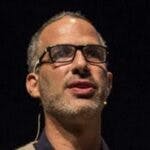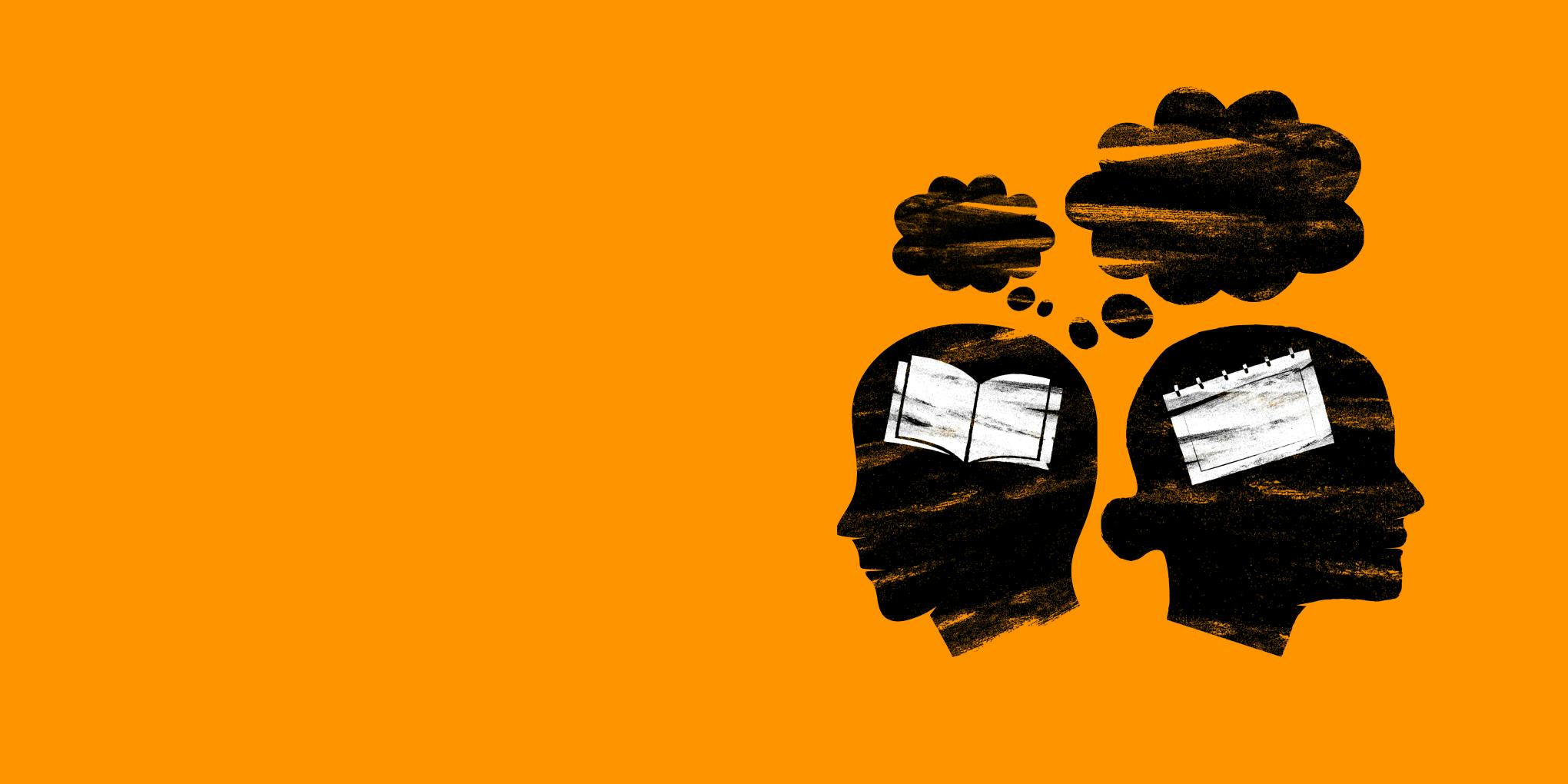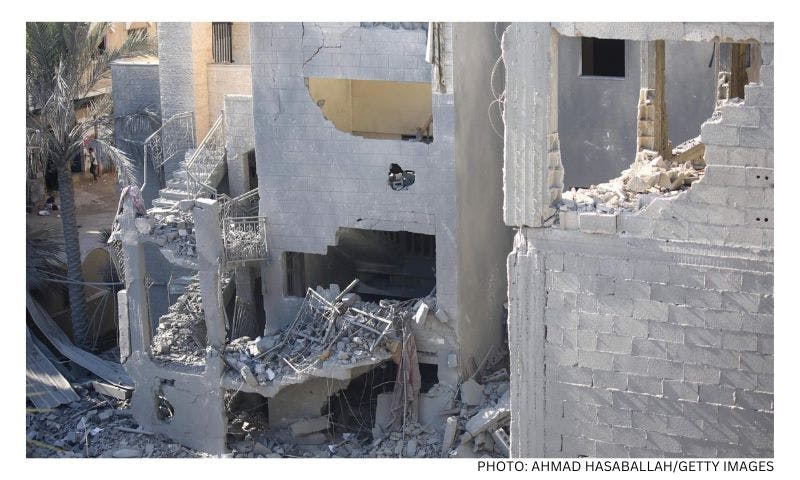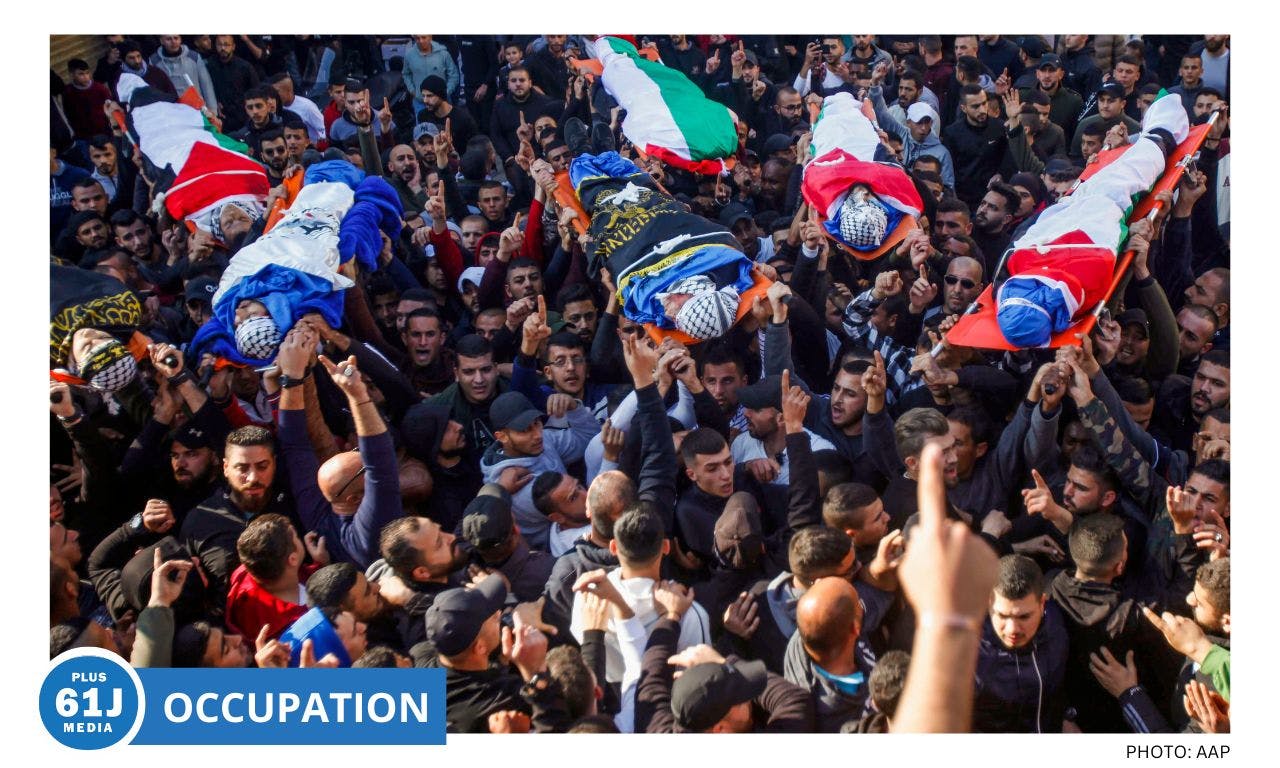Published: 28 February 2020
Last updated: 4 March 2024
In another performance, Younes, a Muslim-German guy, talks about his family and shows us a screenshot of “the fighters of the so cold Islamic state”. The crowd is laughing again. They understand the connection between the Muslim stereotypes and his Muslim looks.
It’s a day after the February 19 terror attack in the city of Hanau in which a racist German shot nine people in two Shisha bars and then killed himself and his mother. I’ve been to a show that came at the end of a conference of New German Organisations, an anti-racist nationwide network committed to diversity that which includes organisations with immigration backgrounds. Both the comedians Jilet Ayse and Younes, from Datteltäter, showed they could make people laugh and remember their messages.
Ayse and Datteltäter described themselves as "Kanackas" (a derogatory name given to Turkish immigrants that became a nickname for Turkish-German activists), and as "Almans" (referring to the Arabic word for Germans). They showed how German society looks at them, through the media that communicates some Muslim threat and does not accept moderate forms of Islam.
After the attack on the synagogue in Halle in November, before that the murder of the Christian Democratic Union politician Walter Lübke, and now the shootings in Hanau – all carried out by right-wing extremists – I’m thinking about where this society is going.
Interior Minister Horst Seehofer announced he would step up police protection for Muslim places considered vulnerable. This is a nice practical step; to date only the Jews in Germany have been considered a community in need of protection. However, the Hanau terrorist did not go to a mosque. And how do they intend to protect all the shisha bars in Germany?
Still, it is interesting because Seehofer, who a couple of years ago still talked about the problem of immigration, has finally changed his stand. Already last summer people were surprised when he talked about Germany’s “right wing problem” and there was no more mention of refugees.
The Hanau terror attack leaves Germany in a state of double shock. If the attack in the Halle synagogue changed the rules of the extreme Right and traumatised German society, it is now clear that the violence is not going to go away, and we must be prepared for another attack.
On social media there is an ongoing discussion about whether the Hanau terrorist was mentally ill. From the material he left behind, there are signs he was delusional. Besides wanting to destroy a dozen other nations, he also talked about time travel.
If the attack in the Halle synagogue changed the rules of the extreme Right and traumatised German society, it is now clear that the violence is not going to go away, and we must be prepared for another attack.
But what causes a person to acquire weapons to kill innocent people? Why, time after time, is there a crazy terrorist who lives with his mother and shoots innocent people like it’s a computer game? If he was just crazy, he wouldn’t randomly shoot people. Is his racism a kind of psychotic pathology, or can he be blamed for the same racism as the AfD (Alternative for Germany) far-right party?
The only sin of his victims was to be born or get asylum as non-white, non-Christian, non-European in Germany.
Already, a growing number of voices is calling for the Special Security Services (SSSD) to monitor the activities of the AfD. The SSSD is already following AfD youth. Others blame social media, which allows conspiracy theories and the transformation of marginalised people into radicals.
Currently, the AfD is crashing in the polls. But who knows, will things change before the elections? So far, the party has used the terrorist attack to blame immigrants, claiming their large number is the reason for the attack.
Across Germany there were spontaneous demonstrations of solidarity for the victims of this massacre. Disparate communities joined forces and spoke out against the racism and protection of neo-Nazi movements inflicting terror on the streets of the country.
But beyond this positive movement, there is great concern. The upcoming national elections will show how this new phenomenon of violence is being dealt with. In the Thuringia state elections in November, we saw the fall of conservatives (the CDU) and the rise of both the non-violent radical Left (Die Linke) and AfD.
If this phenomenon occurs in the national elections, there will no longer be a democratic system of Right, Centre and Left. Hopefully, the old parties, the CDU and the Social Democratic Party, and the Liberal Democrats, will align with the Left to stop coalitions with the AfD.
The anti-migrant violence is, of course, linked to the decision of the Merkel government to absorb millions of refugees from non-European countries. But with Merkel's departure looming, and her designated successor resigning, there is a feeling Germany is a ship out of control.
Anxiety that seeps into the social fabric triggers minority groups into identity-driven action. But in Berlin I saw the strength of the migrant organisations that can still laugh after such a deadly attack, even if most of them are Muslim and could be subject to another terror attack.
But the answer to extreme violence cannot come from its victims.
READ MORE
Top Spanish diplomat ‘horrified’ at Holocaust-themed carnival parade(Times of Israel)
Festival in Spanish town of Campo de Criptana featured figures dressed as Nazi guards, Jewish death camp inmates and children wearing yellow stars
Photo: Vigil for victims in Hanau (Reuters)
:




